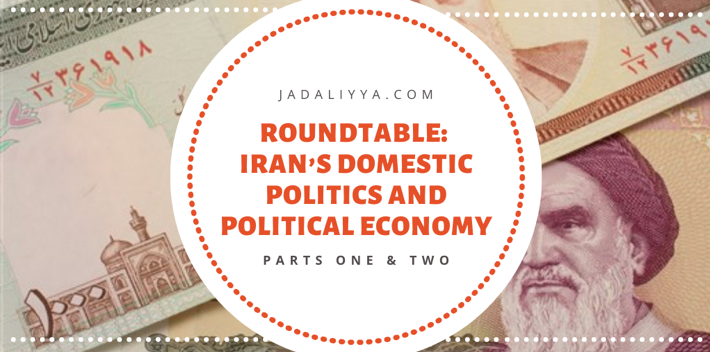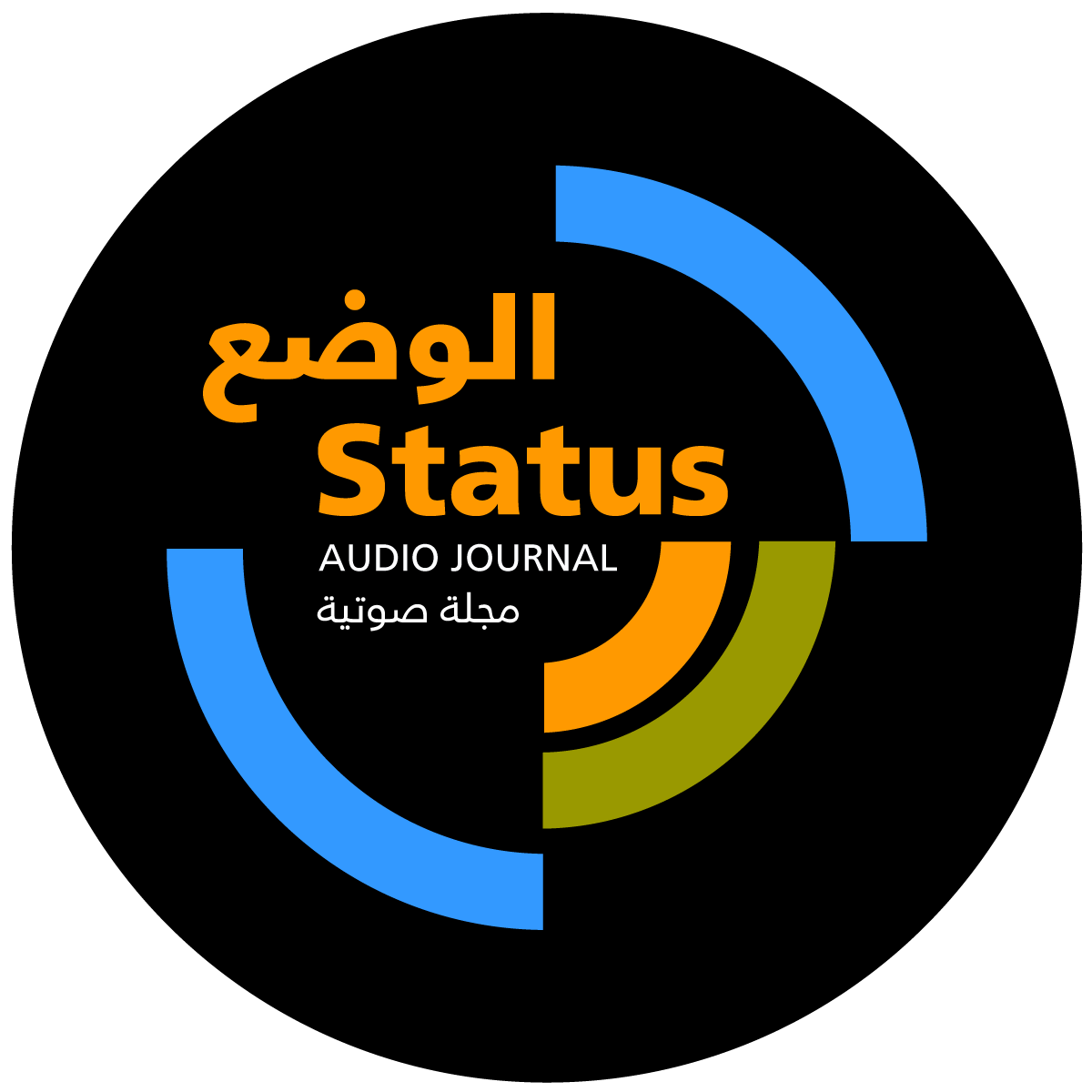This (past) fall, Jadaliyya turned nine. We are proud of what we have already achieved, and excited about our paths forward.
Now more than ever, the region demands nuanced, intelligent analysis based on local knowledge. There is a dire need for inspiration and renewal amid the steady stream of unrest, not least in Lebanon, Syria, Egypt, Iraq, and Iran. On our ninth anniversary, we renew our commitment to our readers, except now with support and contributions from our affiliate organizations at the Arab Studies Institute (ASI).
The advances made by Jadaliyya and its affiliates at ASI this year cannot be understated nor fully addressed here. So much so that for the first time in nine years we failed to announce our anniversary on time, which usually happens in fall. Nonetheless, we are excited to share some highlights.
JADALIYYA DEVELOPMENTS
New and Revamped Pages
This past year Jadaliyya expanded its spheres of operation by launching two new pages, and revamping another. The new Iran Page, launched on 4 September, provides a robust and broad forum to rethink how we have hitherto thought about and represented Iran and Iranians. The page aims to dispel and deconstruct the stale narratives and language that have been used to explain Iran’s behavior. Articles and interviews such as “The Systemic Problem of “Iran Expertise” in Washington,” “Roundtable: Iran’s Domestic Politics and Political Economy,” and “Documenting Anglo-Iranian Oil at the BP Archive” are emblematic of what has attracted a whole new audience to our pages.
The Refugees and Migrants Page (RAMP), launched in fall 2018, was a project long in the making. Developed throughout the past year, the page now boasts a robust media roundup and a series of impressive articles. Examples of the knowledge production on RAMP include the “November Media Roundup,” “The Importance and Impossibility of Researching UNRWA,” and “The Youth of Balata: A Generation of Hopelessness.”
In the wake of albeit short-lived protests, the Egypt Page was revamped on 25 November 2019. As the region experiences an increase in social action, the renewed Egypt Page hopes to address, engage, and debate the role of Egypt and its citizens in current affairs. We launched with several hard-hitting pieces including one on “State Coercion, Debt, and Economic Recovery: Unpacking the Sisi Regime,” and an interview on developments in Egypt’s political economy since 2013.
Increased Arabic Content
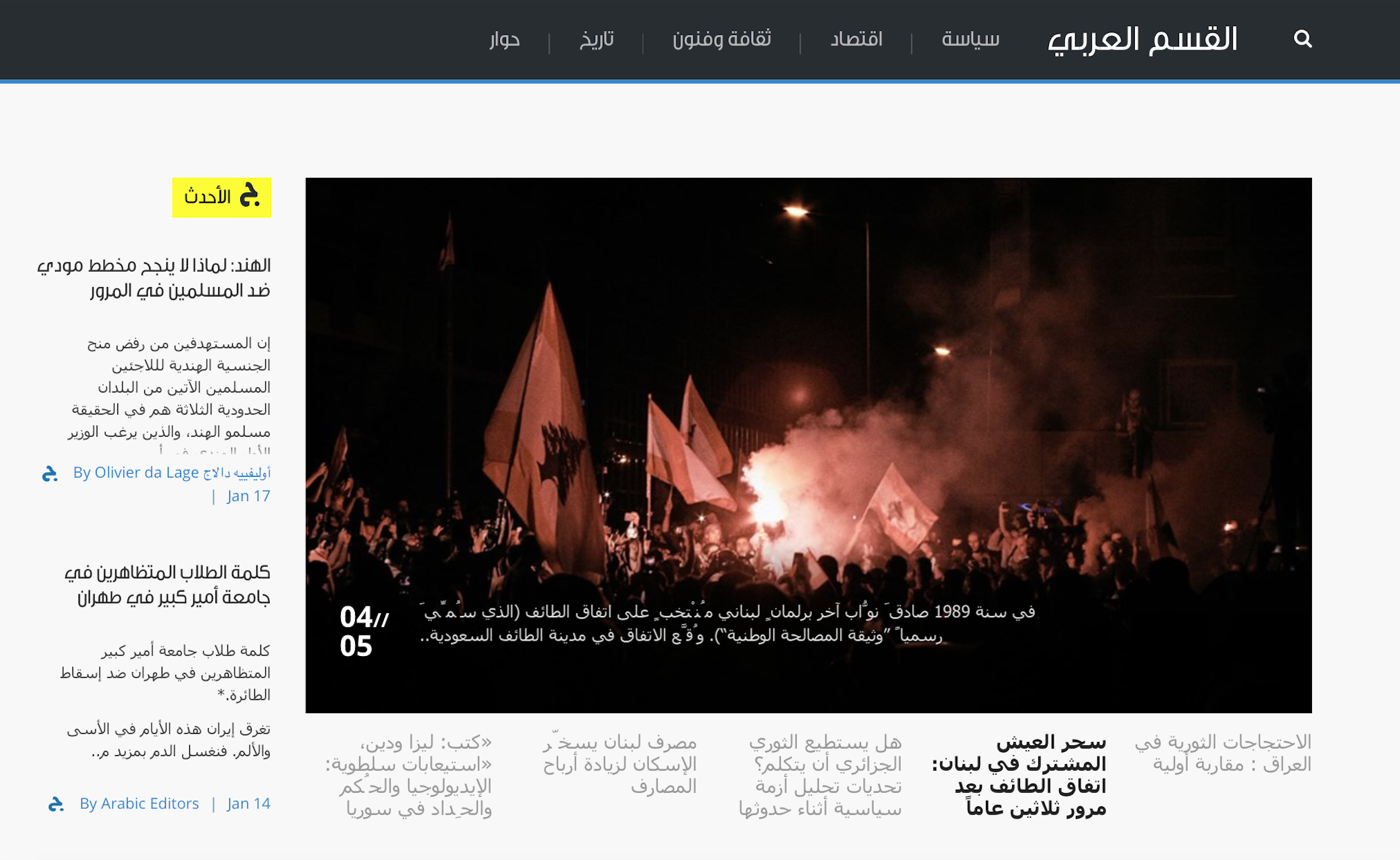
The Arabic section continues to be an open and independent space for and to attract young(er) readers and writers in the Arab world who thirst for critical and nuanced views. In addition to original writings from the region, including regular contributions from promising critics and intellectuals, the section regularly features selected translations from Jadaliyya's English section. We have also curated and cooperated on several roundtables on topical issues such as the “Prospects for Secularism in Syria” and “What is Left of the Syrian Left.”
Roundtables
Jadaliyya continued to demonstrate its dedication to knowledge production by housing three roundtables in 2019.
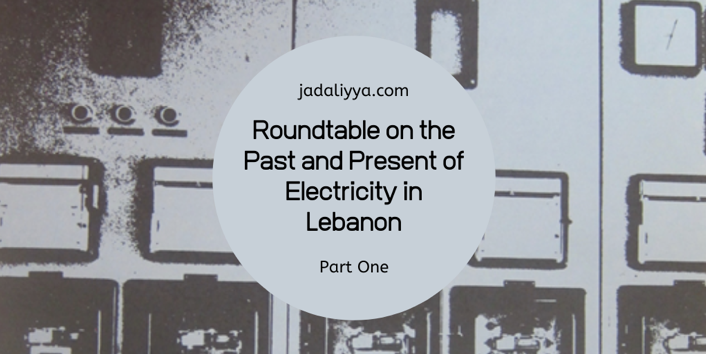
In May, Jadaliyya published the “Roundtable on the Past and Present of Electricity in Lebanon.” The roundtable reflects on the nature of Lebanon’s electricity sector and the production of knowledge about it.
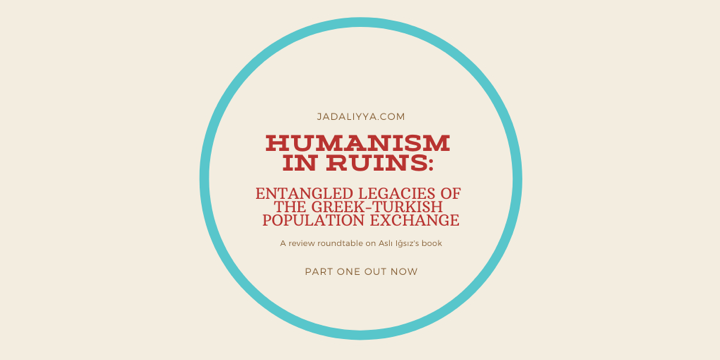
On 11 September, we published the “Humanism in Ruins Roundtable,” which explores Aslı Iğsız's book, Humanism in Ruins: Entangled Legacies of the Greek-Turkish Population Exchange.
This past month Jadaliyya published “Roundtable: Iran’s Domestic Politics and Political Economy.” The two-part roundtable consists of thoughtful debate surrounding the political economy and domestic politics of Iran both before and during recent uprisings.
Reporting on Protests Across the Region
This year brought with it new calls for revolution and reform in the region, from Sudan and Algeria, to Lebanon, Iraq, and Iran. When protests began in early March in Algeria, Thomas Serres, provided Jadaliyya with his “Quick Thoughts” on what is now known as the Hirak. As revolutionary sentiments traveled south to Sudan, Khalid Medani’s piece, “The New Mobilization Dynamics of Sudan’s Popular Uprising: The Virtue of Learning from the Past,” provided our readership with a better understanding of the uprising and subsequent ousting of President Omar al Bishir. On 1 October, Omar Sirri published “Ongoing Updates on Protests in Iraq.” As protestors took to the streets of Iran in mid-November, Jadaliyya’s Iran Page was quick to respond. Eskandar Sadeghi-Boroujerdi published “Between Solidarity and Absolution: An Interjection on the Western Left’s Response to the Recent Protests in Iran,” and participants in “Part 2 of Roundtable: Iran’s Domestic Politics and Political Economy” assessed the protests as they unfolded.
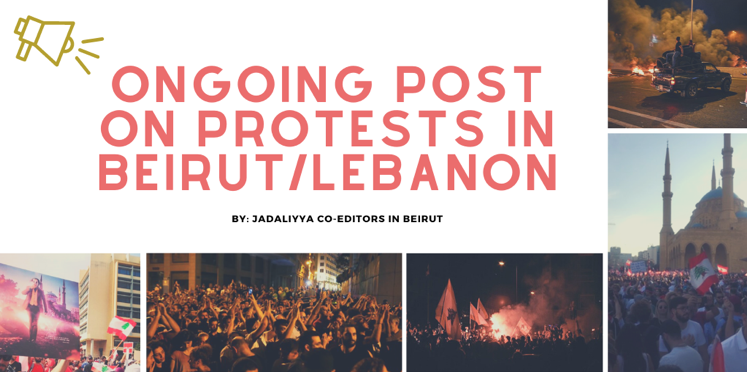
Jadaliyya editors provided critical analysis of each new uprising as they arose. As revolutionaries took to the streets of Lebanon on 18 October, several Jadaliyya Co-Editors joined in the protests. Their participation has informed their widely read “Ongoing Post on Protests in Beirut/Lebanon.” The aim of our reporting was to help ground our reader’s understanding of the protests, beyond what was being said about them via conventional media outlets.
Top-100 Most Read Articles On Jadaliyya in 2019
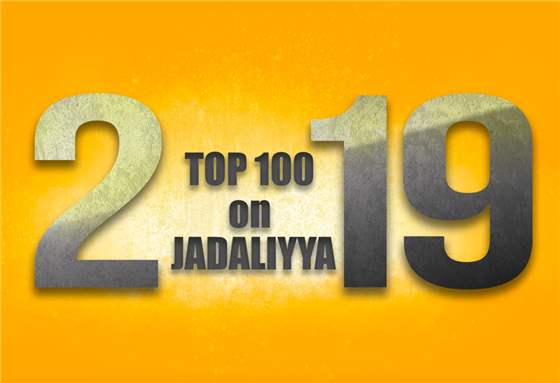
Content featured on Jadaliyya's new pages, in addition to publications from years past, continued to attract a large audience in 2019. Take a look at the “Top-100 Most Read Articles on Jadaliyya” from 2019.
TADWEEN PUBLISHING: JADALIYYA IN PRINT
One year ago, we launched a new era and concept for JadMag: Jadaliyya in Print, one that was always part of its raison d’être. The cultivation of a steady readership through Tadween Publishing’s subscription-based model has enabled us to produce a wide-ranging and even more intellectually stimulating publication.
In the year since launching subscription issues, we have featured new articles by diverse scholars ranging from “Political Islam and the Endurance of American Empire” by Adbdullah al-Arian to “The Sun Sets on Algeria’s Crony Capitalists” by Thomas Serres and the groundbreaking piece “A Few Things Wrong with Political Economy of the Middle East” by Julia Elyachar. We also published the Cities JadMag, wherein editors Mona Harb and Eric Verdeil enhance our understanding of “the shaping roles of the built and natural environments in the production of events unraveling in cities and regions of the Middle East.” We are also excited about the upcoming release of our first pedagogy issue.
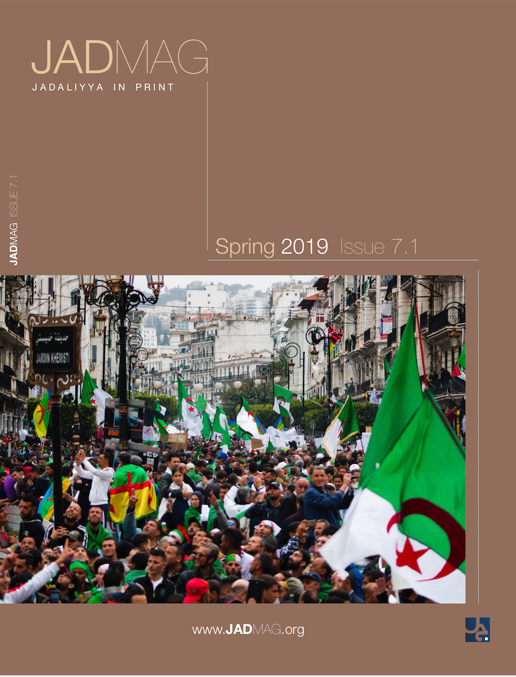
Coupling timely content with the addition of essential readings lists, reviews of new books and scholarly articles, and topical pieces from Jadaliyya’s celebrated archives allows the JadMag project to more ambitiously to function as a knowledge producer, a near-comprehensive source of analysis on the region, and a pedagogical resource par excellence. Subscribe to JadMag today at www.JadMag.org.
COLLABORATIONS
Middle East Studies Pedagogy Initiative
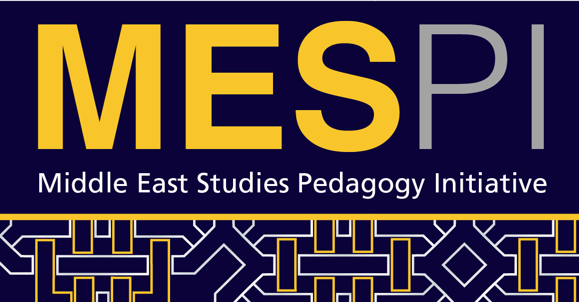
We also strengthened our collaboration with the Middle East Studies Pedagogy Initiative (MESPI), which now has a full board and its own new website, MESPI.org. As MESPI has grown significantly since 2015, so too has MESPI’s relationship with Jadaliyya and other sister organizations at ASI. At this point, both MESPI and Jadaliyya serve as the platform for MESPI’s “New Texts Out Now,” “Engaging Books” and “Essential Readings,” “Peer-Reviewed Articles Review,” and other pedagogy-oriented articles, projects, and modules. All projects produce new material on a regular, often weekly, basis. The collaboration has fostered the publication of several hundred articles that grant Jadaliyya readers exposure to new and important scholarship and pedagogical resources related to the region.
At the Annual MESPI Conference in June 2019, the MESPI team, along with its board, worked to expand the program’s many projects. With the help and insight of board members, the MESPI network has grown immensely, enabling us to solicit and publish more “Essential Readings” pieces. Furthermore, we began the hard work of creating our first three syllabus modules on gender, Islam, and Iran.
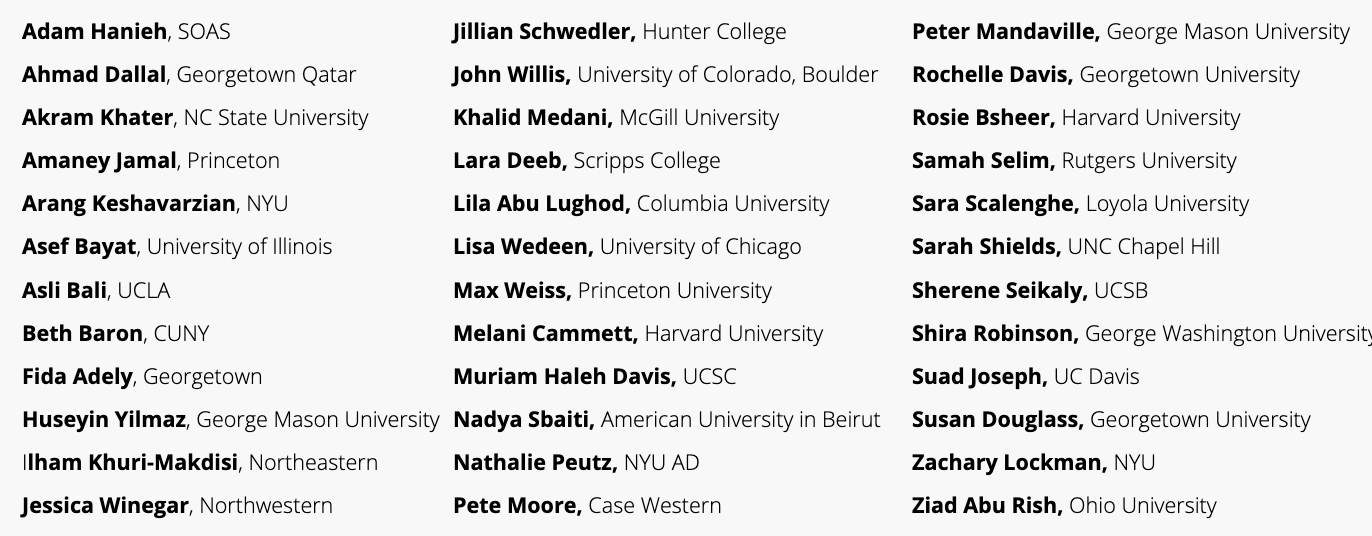
Status Audio Magazine
Status Audio Magazine, in collaboration with Jadaliyya, produced a large array of content in 2019. Status Issue 6.1 and Issue 6.2 included interviews with Jadaliyya contributors, giving them space to articulate their ideas beyond what they had published in writing. Our readers also enjoyed new episodes of “The Nerdiest Show on the Internet,” which features researchers talking about books received at the desk of the Arab Studies Journal and Jadaliyya. The two teams also launched “The Real Football Podcast,” where Status and Jadaliyya team members address a variety of topics, including women’s football matters, racism, the state of Arab national teams, and more. In collaboration with the Arab Studies Institute’s various projects, Status Audio Magazine has launched, “Jadaliyya Talks,” ‘Tadween Talks,” and “MESPI Talks.” Each series provides an outlet for Jadaliyya, Tadween, and MESPI authors to further unpack their research and ideas through a podcast medium.
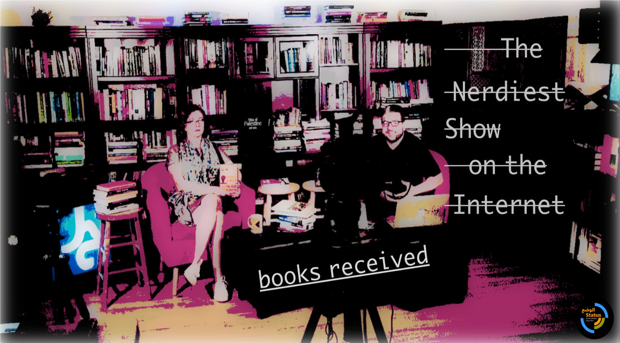
Arab Studies Journal
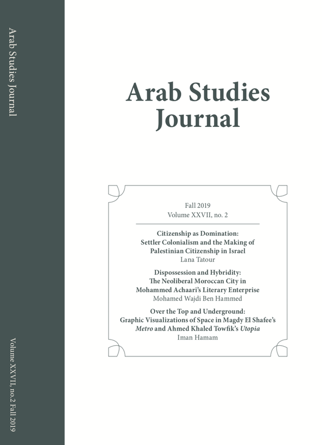
For several years now, Jadaliyya continues to feature select peer-reviewed articles and book reviews from the Arab Studies Journal. Featuring these pieces serves to keep Jadaliyya readers abreast to developments and publications produced by the Arab Studies Journal. The Arab Studies Journal Fall 2019 issue is out now! 2019 marks our fourth year in a row of publishing two issues per year. Increased production has allowed our editorial team and pool of contributors to continue to expand in ways reflecting the vibrancy of the field.
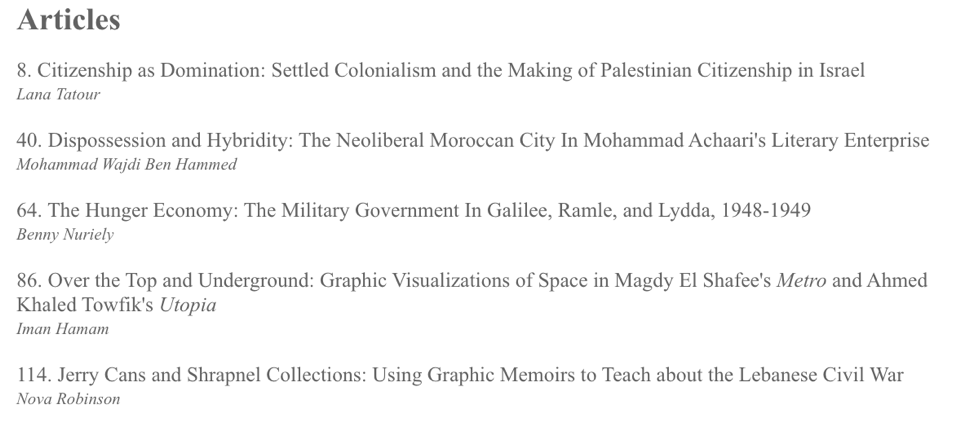
Political Economy Project
The Political Economy Project (PEP) represents a network of scholars working around issues of critical political economy in the Middle East. The aim of PEP is to foster this network through a variety of initiatives, including collaborations with Jadaliyya to publish virtual roundtables, NEWTON contributions, Status Hour segments, and articles, as well as our two major yearly activities, the Political Economy Summer Institute (PESI) and the Political Economy Book Prize. The PESI is now entering its fifth year and is run by the Pedagogy Committee of the PEP, which is composed of seven members from the network who oversee the publishing of the call for applications, their review, and the design of the five-day curriculum that includes instructor sessions, student presentations, guest lectures, and professional development panels. The Book Prize is awarded annually to a book that makes an original and innovative contribution to the study of critical political economy in the Middle East. The winner of the Book Prize is determined by a six-person committee that solicits and reviews all submissions.
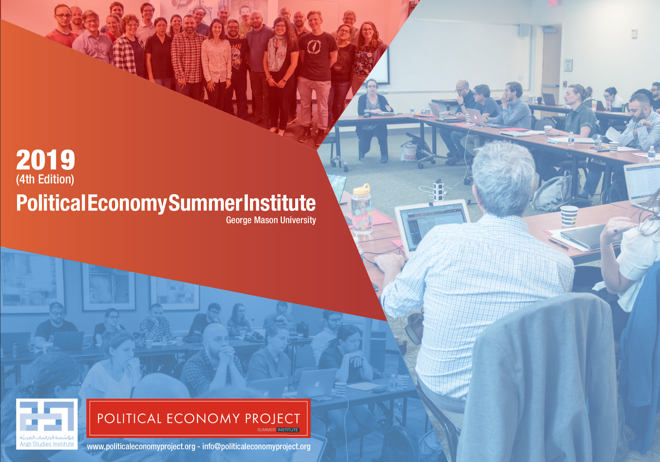
[Collaboration with Tadween is addressed above.]
IN CLOSING
As we enter our tenth year, the Jadaliyya team is more energized than ever to be a fountain of knowledge, analysis, and insight for our readers. We would be remiss not to share some of the exciting developments that have been occurring of late, not least regarding the recruitment and creation of new pages and page teams. But we will leave this to another time.
We sincerely thank you, our readers, for your loyalty. Most of all, as always, we thank you for reading.
